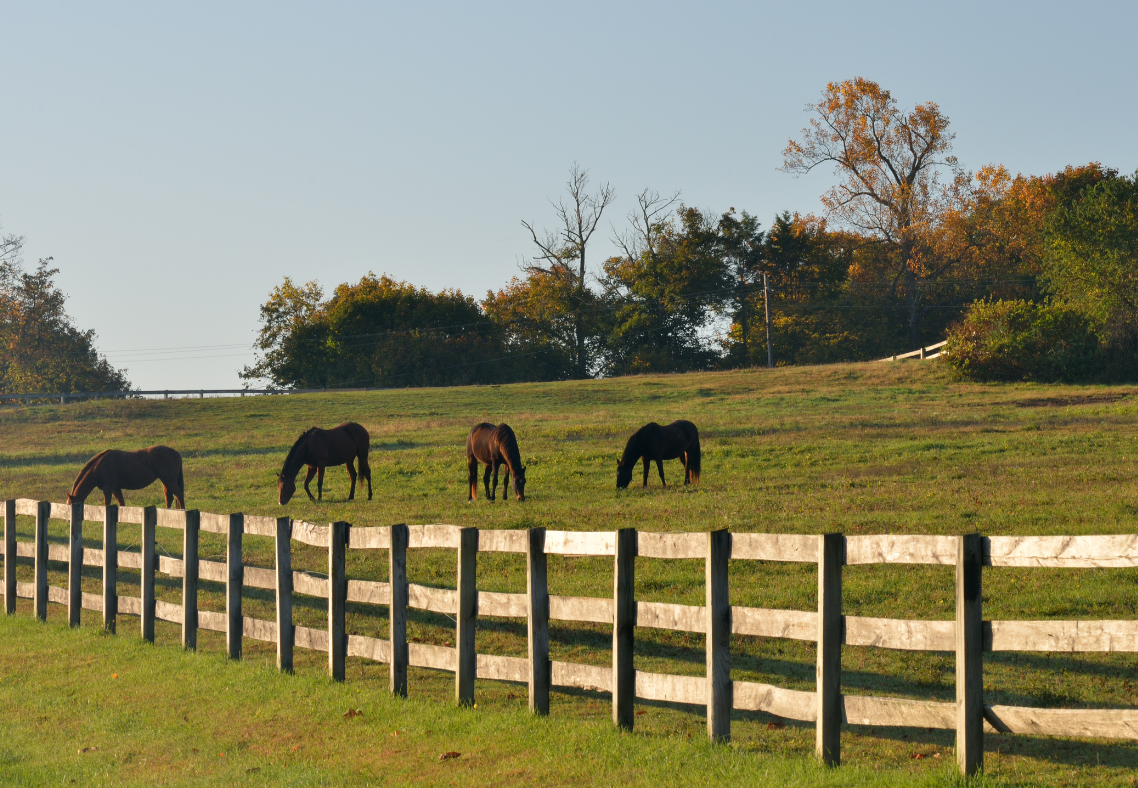Selecting the appropriate agricultural fencing for horses in Palm Beach County, Florida, is a critical decision that impacts the safety of your animals, the longevity of your investment, and the overall functionality of your property. Florida’s unique climate and environmental conditions necessitate careful consideration when choosing fencing materials and designs. This guide will explore the key factors to consider when purchasing agricultural fencing for horses in Florida, ensuring that your choices align with both your needs and the well-being of your equine companions.

8 Things To Consider When Purchasing Agricultural Fencing For Horses In Florida
Understanding Florida’s Climate and Its Impact on Fencing
Florida’s hot, humid climate, coupled with frequent storms and high winds, presents specific challenges for agricultural fencing. Materials must be resistant to moisture, UV rays, and corrosion to withstand these conditions. For instance, vinyl and high-tensile wire are known for their durability and low maintenance in such environments. Treated wood is also a viable option, provided it is properly maintained to prevent rot and insect damage. Selecting materials that can endure Florida’s weather extremes will reduce long-term maintenance costs and ensure the safety of your horses.
Prioritizing Horse Safety in Fence Design
When it comes to horses, safety is paramount. Fences should be highly visible to prevent accidental collisions and constructed without sharp edges or protrusions that could cause injury. Traditional wood fencing offers a natural look and is generally safe, but it requires regular upkeep. Vinyl fencing provides a smooth surface and is less likely to splinter, making it a safer alternative. Electric fencing can be effective for training purposes but should be used cautiously, ensuring that the voltage is appropriate and the fence is clearly marked to prevent accidental shocks.
Determining the Appropriate Fence Height and Structure
The height and structure of your fence should correspond to the size and behavior of your horses. A standard height of 5 feet is typically sufficient to prevent horses from jumping over. The bottom of the fence should be no more than 8 inches from the ground to prevent horses from crawling underneath. Post spacing is also crucial; for wooden fences, posts should be spaced 6 to 8 feet apart, while high-tensile wire fences can have posts spaced up to 12 feet apart. Proper spacing ensures structural integrity and prevents sagging or collapse.
Considering Visibility and Aesthetics
Visibility is an often-overlooked aspect of horse fencing. Horses are more likely to respect and avoid fences they can see clearly. White or brightly colored fences enhance visibility, especially in low-light conditions. Vinyl and painted wood fences offer aesthetic appeal and can be customized to match the style of your property. While aesthetics should not compromise safety, a well-designed fence can enhance the overall appearance of your farm.
Evaluating Maintenance Requirements
Maintenance is a significant factor in the long-term viability of your fencing. Wood fences, while attractive, require regular painting or staining to protect against the elements. Vinyl fences are low-maintenance, needing only occasional cleaning to maintain their appearance. High-tensile wire fences require periodic tension adjustments and inspections to ensure they remain secure. Understanding the maintenance demands of each fencing type will help you choose an option that fits your schedule and resources.
Budgeting for Installation and Long-Term Costs
Budget considerations extend beyond initial installation costs. While some fencing options may be more affordable upfront, they may incur higher maintenance expenses over time. Conversely, investing in higher-quality materials may result in lower long-term costs due to reduced maintenance and increased durability. It’s essential to evaluate both the immediate and future financial implications of your fencing choice to make an informed decision that aligns with your financial planning.
Complying with Local Regulations and Best Practices
In Palm Beach County, agricultural fencing must comply with local zoning laws and regulations. These may dictate fence height, materials, and placement, particularly concerning property lines and public right-of-ways. Additionally, adhering to best management practices (BMPs) for water resource protection is crucial. For example, fencing off water bodies prevents horses from contaminating water sources and helps preserve the local ecosystem. Consulting with local authorities or a professional fencing contractor can ensure compliance and environmental stewardship.
Integrating Fencing with Overall Farm Management
Your fencing should complement your broader farm management strategies. Consider how fencing integrates with pasture rotation plans, manure management, and access to shelter and water. Effective fencing contributes to efficient farm operations by facilitating controlled grazing, protecting sensitive areas, and enabling easy movement of horses between different zones. A well-thought-out fencing plan supports the health of your horses and the sustainability of your farm.
Contact Pick-It Fence Company Today For Agricultural Fence Installations In Palm Beach County, Florida
At Pick-It Fence Company, we understand the unique challenges and requirements of agricultural fencing for horses in Florida. Our experienced team is dedicated to providing customized fencing solutions that prioritize the safety of your horses, comply with local regulations, and withstand Florida’s climate. We offer a range of materials and designs to suit your specific needs and aesthetic preferences. Contact us today to schedule a consultation and learn how we can help you enhance your property’s functionality and appearance with high-quality agricultural fencing.
